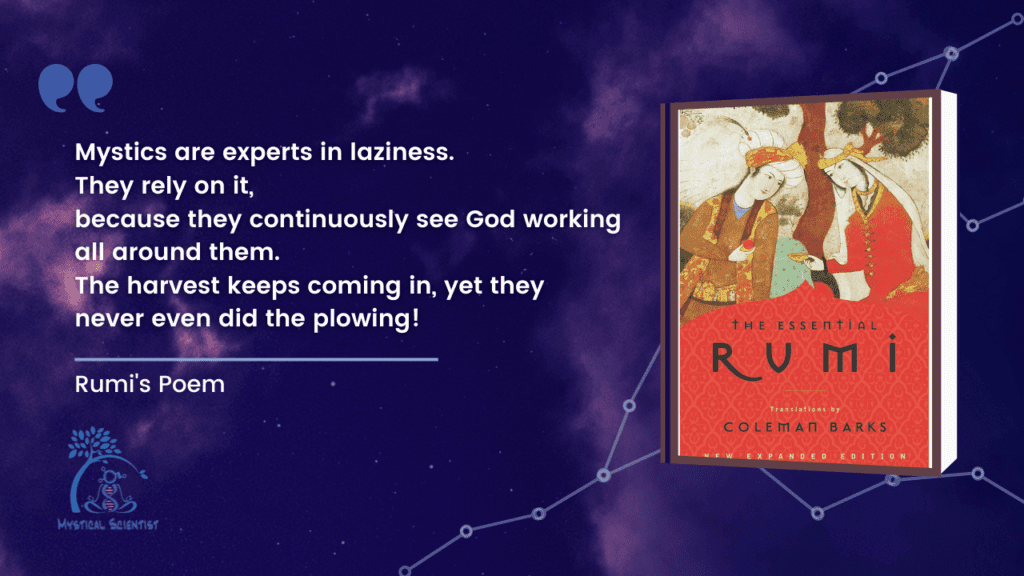
My teenage son came to talk to me after school. His teacher had asked the students what they consider to be their best trait, and he had replied: “My best trait is that I’m lazy.” Wow, I thought to myself. To have pride in being lazy?! I wish I could do the same.
While I was admiring his answer, I felt a pang of guilt, since throughout the years, I’ve been telling him numerous times that he is lazy. And I have not meant it as a compliment!
When I started studying Human Design, I realized that my son is a Projector. To those not familiar with this very interesting system of self-exploration, the Projectors are described as the leaders for the new era, where more compassionate leadership is required to guide humanity’s efforts.
According to the Human Design system, the Projectors make about 21% of humanity, and they possess an innate ability to see the gifts and talents in others. They are the seers and guides, but the practical doing, aka the manual labor, needs to be done by someone else. Projectors are here to guide the energy of others, mainly the two types called Generators and Manifesting Generators that cover about 70% of humanity. These two Generator types make the world go round. They are the motors for productivity, the busy bees, and the doers. Hard, manual labor may deplete the Projector types who don’t have unlimited resources of energy, and they need to be mindful of how they expend it. Alone time and introspection every so often are critical for Projectors so that they can recharge their batteries.
When I was listening to my son, I realized that he has naturally followed the energetic way most suitable for his Human Design type by being “lazy”. And the admirable thing is that he recognizes this as his strength. Whoa… in this time and age where busyness is worn like a badge of honor that people keep flashing every time you ask them how they’ve been!
As a product of my generation, brought up by two hard-working parents, the word lazy has a very negative connotation to me. For that reason, I told my son that he could always re-phrase his best quality as “I know how to preserve my energy.” And while I was still guilty of using the word lazy to describe him, and inserting this word into his self-image and vocabulary, at the same time I felt that maybe my mystical woo-talk is hitting some mark in the minds of my kids. At least I had avoided conditioning him so much that he needed to make up something more palatable to answer the teacher’s question. Oh, the guilt and pride as a mother all in the same package.
When Rumi talks about laziness in this poem, it reminds me of how I have been able to shed that busyness from my daily life. Whenever I feel that I’m extremely busy, I know I’m getting more and more disconnected from my higher power, from my peace. It’s our egos that drive us to be busy. The crazy fact is, that many times things get done even when we don’t do anything. I have made peace with not working overtime. I don’t go to the lab on weekends. I finish my work or don’t even start the next experiment if I need to go pick up my kids from school or if it’s getting too late for me and I start feeling exhausted. There is always another day. We do as much as we can today and continue tomorrow if needed. I refuse to beat myself up for something that I didn’t have time to do. And yet, things get done. Sometimes this means that the data set is not ready until tomorrow, even when my supervisor asks it to be done today. It hasn’t been a big deal. I haven’t gotten fired nor has anybody complained. There has been no emergencies, busted deadlines, nor financial losses for anyone. No disasters have happened due to my “laziness”.
It’s amazing to think that just a couple of years ago, I kept driving back to the lab at 1 am to make sure I had a data set to present to my boss at work the next morning. Many times, these late nights happened after a full day of scrambling and rushing. I remember driving quickly home to have dinner with the family and rushing back to the lab for more work. And these 12-to-16-hour days were not a few and far between. I felt that it was expected of me. I expected myself to work like that. Oh, and for what?! What drives us to do that?!
Why do we need to reply to all those emails on our days off?! Why do we need to work overtime for the requests of our supervisors that may not even care if the results are there the next morning?! Why would I carry out experiments dead-tired in the middle of the night, when there is a high probability I will make a mistake, or overlook something and the data doesn’t come out right in the end anyway?
What drove me to overworking, was fear and comparison. Fear of reprisal, fear of losing the job, fear of being judged, fear of not being enough or doing enough, fear of not getting promoted if I didn’t push myself to work harder and harder. And the comparison to others. Am I carrying my load, do they see me stepping in, do I need to take one for the team, am I the first one to leave the office?
For those in corporate careers: have you ever bided your time in the office to see someone else be the first one to leave, or at least waited for your supervisor to leave before you felt comfortable enough to head out? And don’t you hate the bosses who come in super early, and leave super late, and make everyone feel that we need to work like lunatics to match up to them? I don’t know about you, but I certainly have tried sneaking out without no one noticing if I ever felt that I’m leaving “too early”. But it’s not our supervisors that make us feel anything. It’s us, with the comparison that we do in our minds. We create our fearful feelings from our own thoughts and beliefs. We judge ourselves and then see that judgment reflected back to us from our environment.
The mystics, as Rumi calls them, know that we’re not doing this life alone. We trust that there is a vast and benevolent Universe out there that works as our co-creative partner. It is not just “me, myself and I” pushing against all odds. The whole universe is backing us up. As Rumi says, we continuously see God working all around us.
But how do you become an expert in laziness? Can you be lazy without fear or judgment? Do you trust that things have their way of working out, no matter what you do? Paradoxically, being lazy may take a lot of work, since it requires us to be non-judgmental, and have trust, faith, and courage.
I could call myself an expert in laziness, but I don’t say that publicly (hold on… I may have just contradicted myself there). Unlike my fearsome son, I wouldn’t go describing myself as lazy to my supervisors, and most likely would leave it out from the list of my best qualities in a job interview. But lazy I can be if it serves me. I have done the hard work and learned to shed the fear. I don’t compare myself to others anymore. I take full responsibility for my actions, and I know that I’m equipped to deal with consequences if there ever are any. I don’t make my own behavior a problem before there even is one.
And the harvest keeps coming in. I don’t need to do all the plowing.
I just need to trust and surrender.
